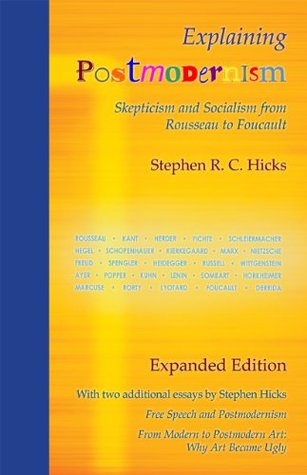Postmodernist reactions to the prospects of a brutal post-modern social world then fall into three main categories, depending on whether Foucault’s, Derrida’s, or Rorty’s variant is given primacy. Foucault, following Nietzsche more closely in having reduced knowledge to an expression of social power, urges us to play the brutal power politics game—though contrary to Nietzsche he urges that we play it on behalf of the traditionally disempowered.[116] Derrida, having followed Heidegger more closely and purified him, deconstructs language and retreats into it as a vehicle of aesthetic play,
...more
Welcome back. Just a moment while we sign you in to your Goodreads account.


